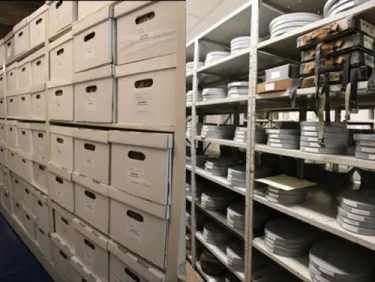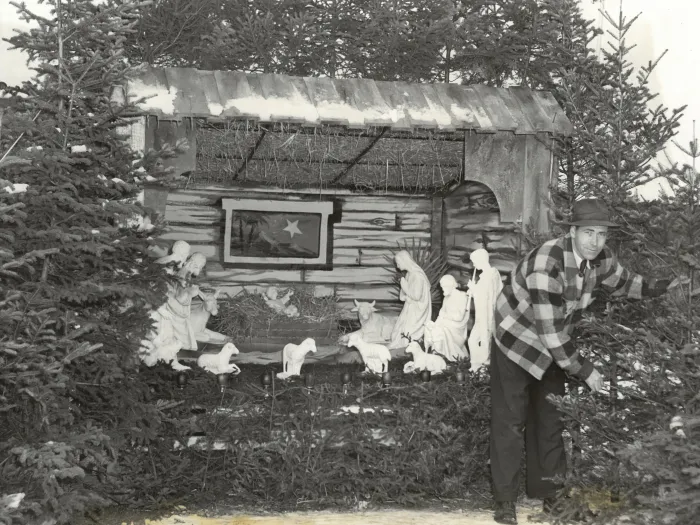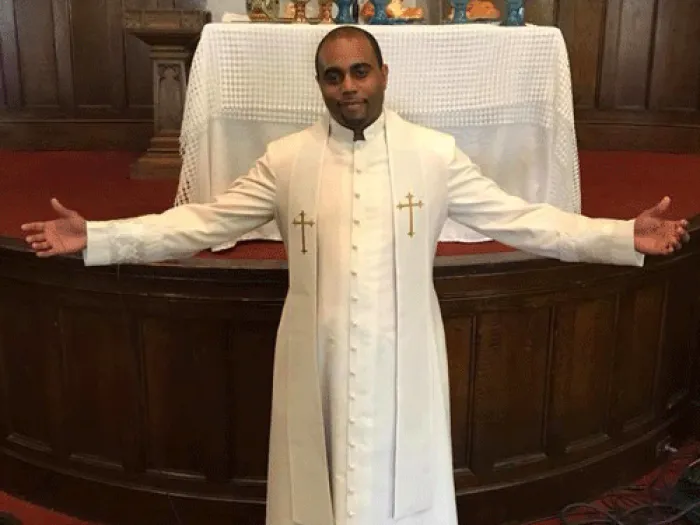What is and isn’t a matter of record
Presbyterian Historical Society Records Archivist David Staniunas leads a webinar for mid council leaders on document retention


LOUISVILLE — “It’s true,” David Staniunas, records archivist for the Presbyterian Historical Society, said at the outset of a webinar on records retention offered last week. “I do love talking to mid council folks.”
About 30 people attended the webinar, presented by the Office of the General Assembly’s Mid Council Ministries.
Organized in 1852 as the national archives of Presbyterianism, PHS houses more than 36,000 cubic feet of records. “Record-keeping is important to you,” Staniunas said. “If there’s one thing you do well, it’s keeping records of your ministry. Record-keeping is integral to your polity.”
Staniunas, who’s in his 13th year at the Philadelphia-based PHS, began the webinar with a scenario some mid councils are now facing: how to close a presbytery office’s footprint in an orderly manner and how to equip people to close churches and their records.
Certain records must be kept, of course, and number one on the list is the minutes, “the single most important thing you create,” he said.
Records of some committees of presbytery, including the committee on ministry and committee on preparation for ministry, are also important to preserve. PHS treats personnel records of ministers, candidates and inquirers as permanent records. “They document the due diligence mid councils do in the call process,” Staniunas said.
It's also important to preserve insurance records, he said.
He cautioned mid council and other church leaders to avoid scanning documents “where accidental disclosure can harm people. Be careful how you share links with folks” because “you could share stuff that should be privileged access.”
PHS serves as “a record-keeper, as your back office,” Staniunas said. “Any records you no longer refer to can go to us.”
One item for sure doesn’t qualify as a permanent record, ready for storage at PHS: a church’s communion ware. “We are packed to the gills with communion ware, and we can’t store any more,” Staniunas said. “Sorry.”
But “you can use us for digitization,” and PHS each year turns about 100,000 church and mid council pages into digital records.
When a church closes, “we bring in original records in their original state — not photocopies,” he said. Such records can include session minute, church registers and commemorative records, such as a program for a special event.

Staniunas displayed one such example: a century-year-old photo of a children’s pageant from the Bohemian Brethren Church in Omaha, Nebraska, which ministered to Czech-speaking immigrants. Through its preserved records, the church “used the past to reflect on the present,” he said.
During the protests following the 2020 murder of George Floyd, “we sought to document the Presbyterian witness alongside the Black Lives Matter movement,” Staniunas said. PHS’s Racial Justice Collection now includes videos of worship services and Bible studies, personal messages from pastors, and news coverage of Presbyterian responses to and with BLM from 2015 to 2021.
Since 2018, PHS has dedicated staff and money for the digitization of records of African American Presbyterian churches. Last year, PHS staff completed the process for 10 such churches and are on track to complete 10 more this year.
They’ve also worked to bring about the Katie Geneva Cannon Digital Collection, a single online repository of the life of the first Black woman ordained in the Presbyterian Church and a founding voice in womanist theology. It took two years to scan 15,000 pages and photographs, with Staniunas producing digital versions of dozens of hours of audio and video.
Staniunas also pointed webinar attendees to the Pam Byers Memorial Collection, which, according to its description, “documents all sides and perspectives on the 40-year movement for gay ordination and LGBTQ marriage rites in the church.” Byers was the first executive director of the Covenant Network of Presbyterians.
In a question-and-answer session that followed his talk, Staniunas outlined a few rules of thumb:
- PHS will look at preserving “only select bulletins and newsletters” highlighting “something significant in the life of the church.”
- If records are damaged, PHS’s standard is to make images of them.
- If a document “looks old but it’s not a permanent record, it goes into the shredder.”
A webinar participant asked about organizing a presbytery’s digital files “so the next person can understand how things are filed.”
Use plain language for file names, Staniunas recommended. If the name for a file isn’t sufficient, “put a little note inside the folder,” he said. Folder 1 could be minutes, while folder 2 is committee reports, for example. “Dropping a note is a great practice,” Staniunas said.
Staniunas concluded by praising the stated clerks in attendance and across the denomination. “Clerks hold up half the sky,” he said.
Learn more about church and mid council record retention here. Reach David Staniunas here.
You may freely reuse and distribute this article in its entirety for non-commercial purposes in any medium. Please include author attribution, photography credits, and a link to the original article. This work is licensed under a Creative Commons Attribution-NonCommercial-NoDeratives 4.0 International License.




